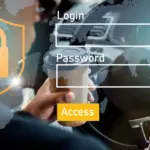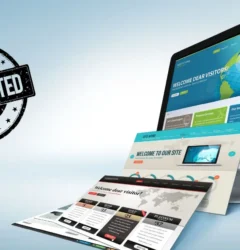25 Apr

As the internet continues to grow, so does the threat of website hacking. It can happen to any website owner, whether it’s a small business website or a large corporation’s website. When a website is hacked, it can have serious consequences, including data theft, reputation damage, and loss of revenue.
Therefore, it’s essential to detect the hacking attempt early to take preventive measures. In this article, we will provide a comprehensive checklist that website owners can use to detect if their website has been hacked.
Understanding website hacking
Before delving into the checklist, it’s essential to understand website hacking. Website hacking is the unauthorized access or manipulation of a website or its data. It can happen due to several reasons, including weak passwords, unsecured third-party applications, outdated software, or human error.
The importance of detecting a hacked website
Detecting a hacked website is crucial because it enables you to take immediate measures to mitigate the damage. If left undetected, hackers can steal sensitive data, inject malware, or take control of the website. This can lead to legal issues, loss of revenue, and damage to the website’s reputation.
How to detect a hacked website
Now that we know why detecting a hacked website is crucial, let’s look at the checklist of how to detect a hacked website.
Check website traffic
Website traffic is a key indicator of website health. A sudden drop in traffic can be a sign that your website has been hacked. Check your website’s traffic regularly and investigate any significant drops.
Check website files and folders
Hackers often inject malicious code into website files and folders. Check all website files and folders for any unfamiliar code, unauthorized changes, or newly added files.
Check website functionality
A hacked website may have broken links, incorrect redirections, or other functional issues. Check your website’s functionality regularly and investigate any issues that arise.
Check website appearance
Hackers may modify a website’s appearance to display their own message or logo. Check your website’s appearance regularly and investigate any changes.
Check website loading speed
A hacked website may load slowly or not at all due to server overload or malicious code. Check your website’s loading speed regularly and investigate any significant changes.
Check website database
Hackers may inject malicious code into your website database, leading to data theft or manipulation. Check your website’s database regularly and investigate any unauthorized access or changes.
Check website search engine results
A hacked website may display unfamiliar search engine results, including spam or malicious links. Check your website’s search engine results regularly and investigate any unfamiliar results.
Check website security certificate
A security certificate verifies the authenticity of a website. A hacked website may have an expired or invalid security certificate. Check your website’s security certificate regularly and investigate any issues.
Check website hosting
A hacked website may have unauthorized access to the hosting server, leading to multiple website hacks. Check your website’s hosting server regularly and investigate any unauthorized access.
Check website backup
Having a regular website backup ensures that you can restore your website to its previous state in case of a hack. Check your website backup regularly and verify that it’s functional.
Check website email
Hackers may send spam or phishing emails from your website’s email address. Check your website’s email regularly and investigate any unauthorized email activities.
Check website logs
Website logs provide valuable information about website activity, including any unauthorized access. Check your website logs regularly and investigate any suspicious activity.
Check website user accounts
Hackers may create unauthorized user accounts on your website, giving them access to sensitive data or the ability to manipulate the website. Check your website’s user accounts regularly and investigate any unfamiliar accounts.
Prevention measures
While detecting a hacked website is crucial, it’s equally important to take preventive measures to avoid it from happening in the first place. Here are some preventive measures:
Keep software up to date
Ensure that your website’s software, including third-party applications and plugins, is up to date. Outdated software is vulnerable to attacks.
Use strong passwords
Use strong, unique passwords for all user accounts, including admin accounts. Avoid using easily guessable passwords, such as “123456” or “password.”
Install security plugins
Install security plugins, such as firewalls or antivirus software, to provide an extra layer of protection.
Conduct regular security audits
Conduct regular security audits to identify and fix any vulnerabilities in your website’s security.
Backup your website regularly
Backup your website regularly and store the backups in a secure location to ensure that you can restore your website to its previous state in case of a hack.
Conclusion
In conclusion, detecting a hacked website early is crucial to prevent further damage. Use this checklist to regularly monitor your website’s health and take preventive measures to avoid a hack. Remember to keep your website’s software up to date, use strong passwords, install security plugins, conduct regular security audits, and backup your website regularly.
FAQs
Can a small business website be hacked?
A1: Yes, a small business website can be hacked just like any other website.
How often should I conduct a security audit?
A2: It’s recommended to conduct a security audit at least once a year, but it’s also good practice to conduct it whenever you make significant changes to your website.
What should I do if I detect a hack on my website?
A3: Take immediate action to mitigate the damage, such as restoring a backup or contacting a security professional for assistance.
How can I prevent hackers from accessing my website’s database?
A4: You can prevent hackers from accessing your website’s database by using secure login credentials, limiting database access, and using encryption.
Can a hacked website recover its reputation?
A5: Yes, a hacked website can recover its reputation by taking immediate action to fix the hack, communicating transparently with its users, and implementing preventive measures to avoid future hacks.
Related Post
Recent Posts
- The Ultimate Defense: Preventing Content Scraping on Your Website

- Mastering WordPress Security: Creating Strong Passwords

- The Ideal Number of WordPress Plugins: A Comprehensive Guide

- Protecting Your WordPress Site: The Importance of Intrusion Detection System (IDS)

- The Ultimate Checklist for Detecting a Hacked Website

Categories
- Data (1)
- Web Security (23)
- WordPress (14)
We provide round-the-clock protection for your website with our state-of-the-art managed security services. You can relax and enjoy peace of mind knowing that we’ve got you covered. Our assurance: if we can’t secure your website, no one can.
© 2024 Seqrex. All rights reserved.


